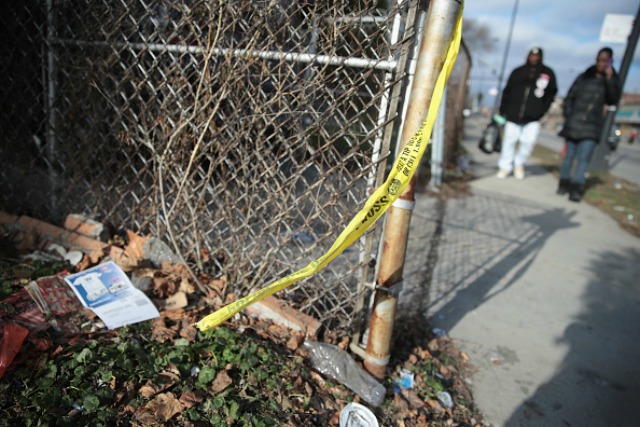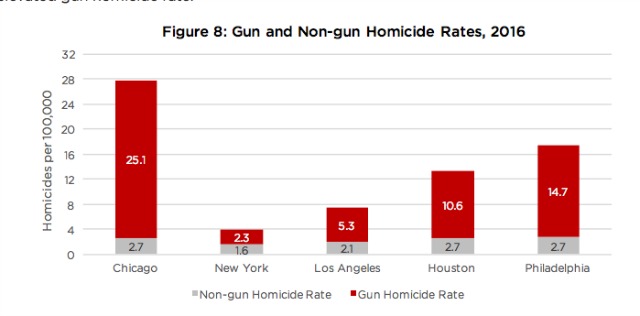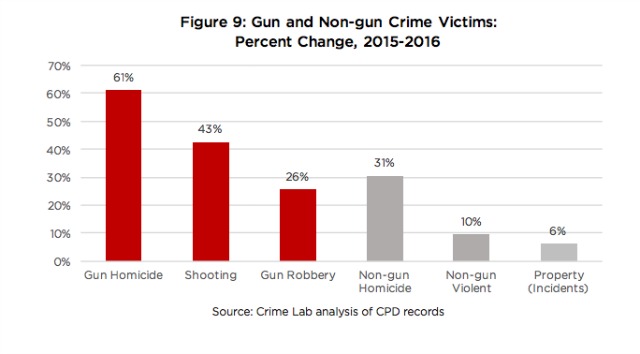How Guns, And Their Increasing Deadliness, Affect Chicago Crime
By Stephen Gossett in News on Jan 17, 2017 7:10PM

Getty Images / Photo: Scott Olson
After last year's news-dominating surge in homicides, everyone in Chicago is looking for answers. A new study of last year’s spike in gun violence, published on Tuesday by the University of Chicago’s Crime Lab, is more descriptive than prescriptive, but the prevalence and increased deadliness of firearms in Chicago it finds jumps off the page.
Homicides in Chicago involve guns at rates higher than many other cities; guns being used are more lethal than in the past; and non-gun crimes aren’t rising the same way gun crimes are, the study determined.
Last year, almost all homicides in Chicago involved guns: 90 percent, up two percentage points from the year prior. But other large cities saw a lower rate of firearms in their homicide. Only 58 percent of homicides in New York City were committed with a gun, with 72 percent in Los Angeles.

University of Chicago's Crime Lab
Another instructive conclusion was the determination that gun crimes increased at a much faster rate than non-gun crimes in 2016. So the surge in violence last year may have more to do with the sheer prevalence of guns rather than gang conflict, researchers found. The result “may suggest the increase in 2016 was not driven exclusively by gang feuds or altercations, since robberies typically also have a financial motivation.”
“This suggests that what happened in Chicago in 2016 was less about an overall increase in the prevalence of anti-social or criminal behavior, but more about a focused increase in gun violence,” the study reads.

University of Chicago's Crime Lab
Chicago also had a high per-capita rate of gun recovery rate by police, and the guns that are being recovered tend to be higher-caliber than firearms used in the recent past. Researchers stressed that recovery rate doesn’t always accurately reflect the total number of illegal guns in a city; and the rate of gun recovery in Chicago was roughly the same as last year.) “This could mean that more illegal guns are on the streets in Chicago, or it could mean the likelihood that a given illegal gun is confiscated by the police is higher in Chicago,” researcher wrote. But the fact that larger-ammunition, larger-magazine guns are on the rise, even above last year, dovetails with the violent crime increase.

University of Chicago's Crime Lab